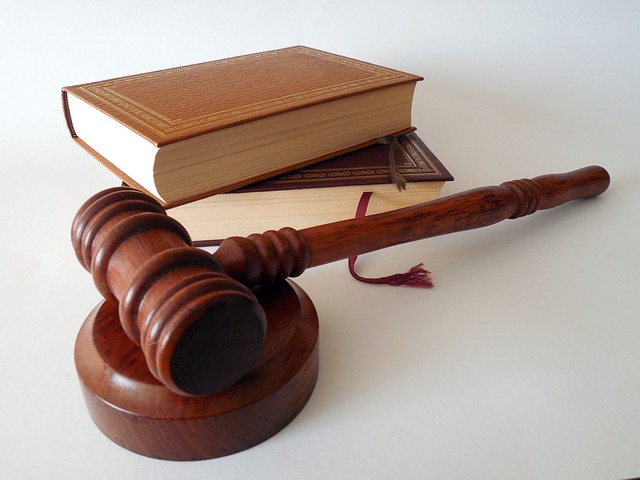A CCJ – or County Court Judgement – is a stage of debt recovery that means a court has been contacted and is now responsible for dealing with the debtor. If you are owed money and cannot recover the debt, a CCJ can be an extremely helpful tool in recovering that money. Debtors cannot ignore a CCJ, and can negatively affect their credit rating, so they are more likely to respond and pay what they owe.
Time restrictions on CCJs
If you have managed to get a CCJ on a person or business that owes you money, for a debt incurred within the last 6 years, that doesn’t mean you have unlimited time to try and collect that debt.
According to the Limitation Act, a creditor can only pursue an outstanding County Court Judgement for six years from the date of the judgement. Beyond that time period, you would need to ask for permission from the court to continue.
If you want to recover money for a judgement that it is over six years old, you would need to ask the court for permission in order to be able to pursue enforcement action in the first place.
What can a CCJ be used for?
A County Court Judgement can be used by creditors against individuals or businesses who fail to pay money they owe. CCJ’s are used for:
- Consumer debt targets: Including loans, credit cards, overdrafts, catalogues, etc.
- Contracts between individuals and/or companies: For example, you can issue a plumber for defective work, or the plumber can sue you if you haven’t paid his bill.
Not all types of debt are covered by CCJs. For example, council tax debts are not subject to this kind of enforcement, but to a different court process, namely a liability order.
How long does a CCJ last?
A CCJ remains on record for six years from the date of the judgement – if it is paid within one month, it is removed. However, if payment is not received within that first month, the it remains on a debtor’s credit record for the full six years, even if it is paid off during that time.
A CCJ on the record will affect a debtor’s credit rating, making it harder to borrow money, including getting a mortgage, for the six years until the County Court Judgement is cleared. Paying the debt within that period will not remove it from the record, but the details will be amended to show that the debt is ‘satisfied’.
During the six-year period that the CCJ is active, it can be pursued by the creditor or a debt collector.
Can a CCJ be extended?
If the six-year timeframe during which the debt was enforceable is about to expire, it is possible to apply to the court to have the CCJ extended. However, you would need to provide a clear, reasonable and justifiable explanation for why the debt has not been recovered or enforced during that time.
If the debtor left the country, for example, you may not have been able to enforce the CCJ. If the debt simply hasn’t been chased, that would not be a good enough reason for the courts to grant permission for an extension.
Can a CCJ be removed from the record?
Paying the debt, in full, within the first month of receiving the judgement can remove it from the public Register of Orders, Judgements and Fines. As long as the full debt is paid in the relevant timeframe, and the court is informed through a certificate of satisfaction, the CCJ effectively never existed.
Debtors can also apply to the court to have it set aside under certain circumstances. These include when the debtor believes – with good reason – that they don’t owe the money, for example the debt was not theirs, the details in the CCJ are incorrect, or the original claim was not sent to the correct address.
To apply to the court for removal of a CCJ, a debtor would have to pay the court fees and attend a hearing to explain why they believe they do not owe the money. If the court finds in their favour, the debt is not enforceable and the judgement is removed, which usually takes around 3-4 weeks. If the court finds against them, the CCJ remains on file for the full 6 years and the debtor is ordered to make the full payment.
Aside from these methods, the six-year waiting period is the only other way to have a CCJ removed from the record.
Where do you need to go to get a CCJ?
If you are owed money, and you haven’t been able to obtain payment from the debtor, considering taking court action is the next step. In order to get the CCJ on someone, you need to ask the court to collect payment from the person or business who owes you money. You can apply to County Court for this purpose whether you are owed by a business or an individual. This process is known as taking someone to a small claims court. You will need to pay a fee to start the process.
If you are claiming a fixed amount of money, you can make your claim online. You may have to go to a court hearing if the person who owes you money denies that fact after receiving the CCJ and you disagree with their response on the reply form.
If your debtor doesn’t pay after you are awarded a judgement, you can ask the court to collect the money via further steps such as using bailiffs or enforcement agents. If you get paid, you must inform the court by updating your claim online or contacting the court if you used a paper claim form.
To find out how Able Investigations can help with asset recovery in Bristol give us a call on 0345 366 0000 or fill out our contact form.




Comments are closed.